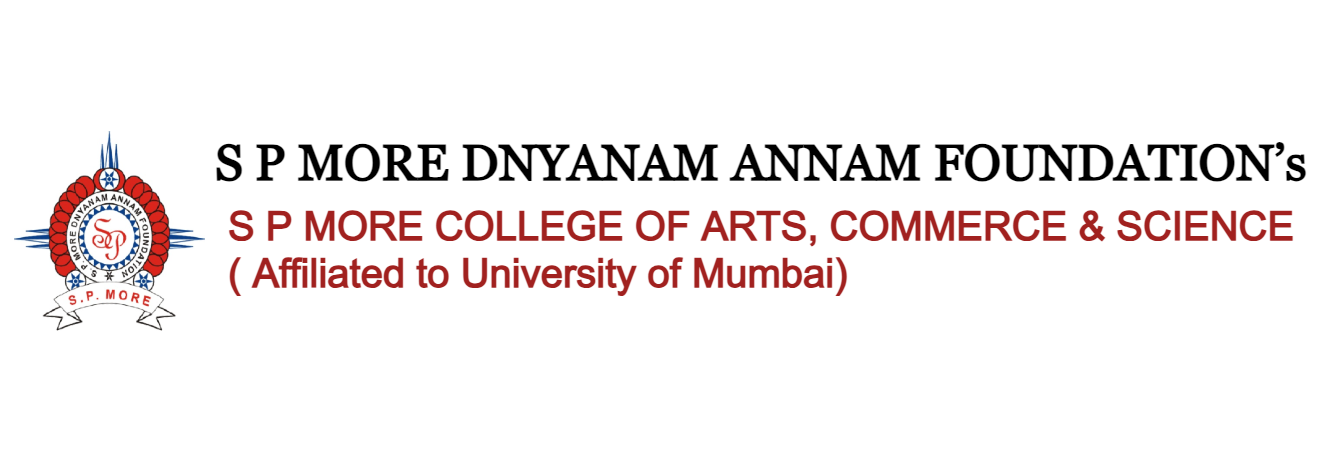
Bachelors in Commerce (B.com)

Bachelors in Commerce (Affiliated to University of Mumbai)

The Best College in Navi Mumbai for B.Com. S P More College of Arts, Commerce & Science offers a 3-year industry-focused program with expert guidance and practical training, making it a top choice between B.com Colleges in Navi Mumbai , Panvel & Thane.

About The Program
Introduction
Management is not just an essential aspect in all fields, but it is also a vital tool employed by corporates and governments alike. From strategic planning to effective controlling, and from budgeting to detailed reporting, managerial elements play a crucial role in daily life. Aspiring students seeking admission to B.Com Colleges in Navi Mumbai must learn about diverse aspects, ranging from rural development to advancements in artificial intelligence. This knowledge is crucial for contributing to India’s growth as one of the top five most powerful economies in the world. By enrolling in the best college for B.Com, learners can equip themselves with the skills needed to shape the future of our economy and management practices for the next generation.
Aims and Objectives
- To familiarize learners with the fundamentals of concept testing in management studies, ensuring they gain insights into core principles.
- To adopt a learner-centric approach, helping students specialize in various domains of management.
- To nurture a bottom-up understanding of global managerial aspects relevant to the economy, preparing students for real-world challenges.
- To enhance employability by exploring diverse dimensions of management studies offered by the best college in Navi Mumbai.
Learning Outcomes
Students studying at the best B.Com colleges in Navi Mumbai will achieve the following outcomes:
- Mastery of management approaches tailored to various scenarios.
- Familiarity with corporate and government management principles, essential for thriving in competitive industries.
- Understanding of financial concepts and their practical applications across multiple sectors.
- Opportunities to delve into marketing aspects, offering pathways to lucrative careers in marketing.
- Practical knowledge of human resource management, equipping students to address real-world challenges in organizational HR sectors.
B.COM DEGREE WITH A DIFFERENCE
B.Com degree + One Free Diploma in job oriented Diploma in Travel & Tourism, Airport ground staff, Retail , Event Management , Entrepreneurship Mgt, Banking & Finance.
LEARN IN THE MORNING & WORK IN THE AFTERNOON
Assured placement after B.Com
A B.Com degree equips students with a wide array of business and management skills. Offered by the best colleges for B.Com in Navi Mumbai, the curriculum typically includes Major subjects, Open electives, and Minor courses, systematically spread across semesters. Students can expect a robust academic structure that aligns with industry needs, ensuring they remain competitive in today’s dynamic job market.
If you’re aiming for a career in management or business, look no further than the best college in Navi Mumbai, which stands out among B.Com colleges in Navi Mumbai for its holistic and practical approach to education.
By choosing the best college for B.Com, you not only gain a degree but also the skills and confidence to excel in your professional journey.
